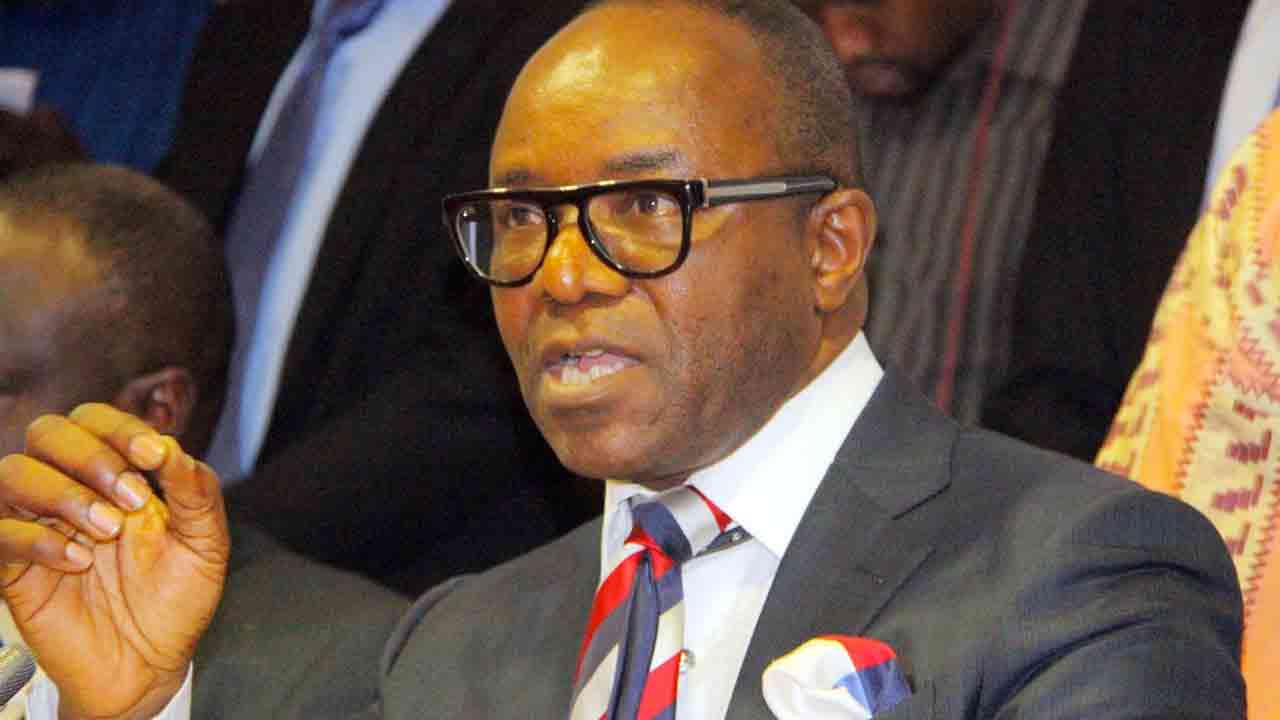- Petrol Scarcity Persists, New Vessels Arrive Apapa
As motorists and other users of Premium Motor Spirit (petrol) struggled to get the product at filling stations in Lagos, Ogun, Kaduna and Nasarawa states as well as the Federal Capital Territory on Monday, it was gathered that new vessels conveying the product arrived Apapa in Lagos.
Many filling stations were shut in the states, while the few stations that had the product recorded long queues of desperate motorists that stretched for kilometres and spilled onto the roads, thereby distorting the flow of traffic.
Some of the stations that dispensed the product on Monday sold it above the official pump price of N145 per litre.
The queues persisted on Monday right in front of the Abuja headquarters of the NNPC, as well as in other locations within the FCT.
In Nasarawa, Niger and Kaduna states, the queues persisted, although the situation improved slightly in some locations in Abuja and neighbouring states on Monday.
Motorists lamented that they had to spend hours in queues for petrol, while some petrol seekers with jerry cans were seen complaining that they had to part with extra money to get the product.
Our correspondents gathered some of the private depots in Apapa, where many marketers get petroleum products from for distribution to other states, did not have petrol to load.
Long queues of desperate motorists and other users of the PMS returned to many filling stations in Lagos and Ogun states on Saturday and Sunday after a brief relief from the severe scarcity of the product that rocked the country from December to early this month.
The Executive Secretary, Depot and Petroleum Products Marketers Association, Mr. Olufemi Adewole, said, “We have not been given what we want and we are still depending on the Nigerian National Petroleum Corporation to give us the product.
“We have made contact with both the PPMC and the NNPC through the managing director of the PPMC and chief operating officer/group executive director, NNPC Downstream. Both have noted our complaint that we are not getting enough and they promised to work on it to ensure that it is addressed this week.”
A top official of a Lagos-based oil marketing company told one of our correspondents on condition of anonymity that the supply situation got a bit better on Monday, adding that his organisation’s depot loaded massively to boost supply.
He stated tjat two vessels had arrived Apapa and one of them started discharging on Sunday, with Aiteo and Nipco receiving petrol from it.
“There is another vessel with not less than 25 million metric tonnes of petrol and is ready to start discharging. I met the vessel this morning; so it must have arrived over the weekend,” he added.
The Group General Manager, Group Public Affairs Division, NNPC, Mr. Ndu Ughamadu, insisted on Monday that the supply and distribution would normalise soon, adding that more trucks were being loaded.
“Once you have disruption in supply, it will take some hours to normalise. MOMAN members are cooperating. We have new vessels discharging the product,” he stated.
On Sunday, the NNPC said a technical hitch in ships berthing and discharging at the weekend, which had been rectified, was responsible for the disruption in supply.

 Forex3 weeks ago
Forex3 weeks ago
 Naira3 weeks ago
Naira3 weeks ago
 Billionaire Watch3 weeks ago
Billionaire Watch3 weeks ago



 Naira3 weeks ago
Naira3 weeks ago






 Naira3 weeks ago
Naira3 weeks ago




 Naira2 weeks ago
Naira2 weeks ago






 Naira2 weeks ago
Naira2 weeks ago




 Naira4 weeks ago
Naira4 weeks ago
























